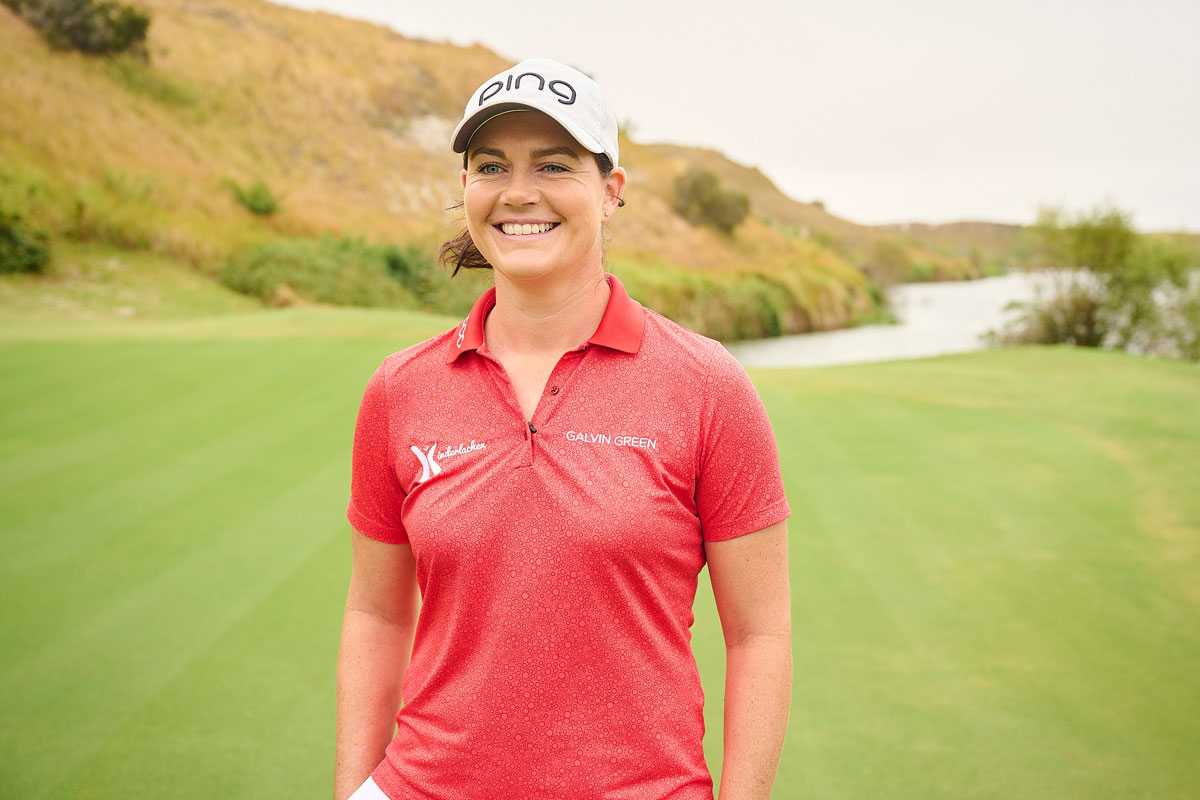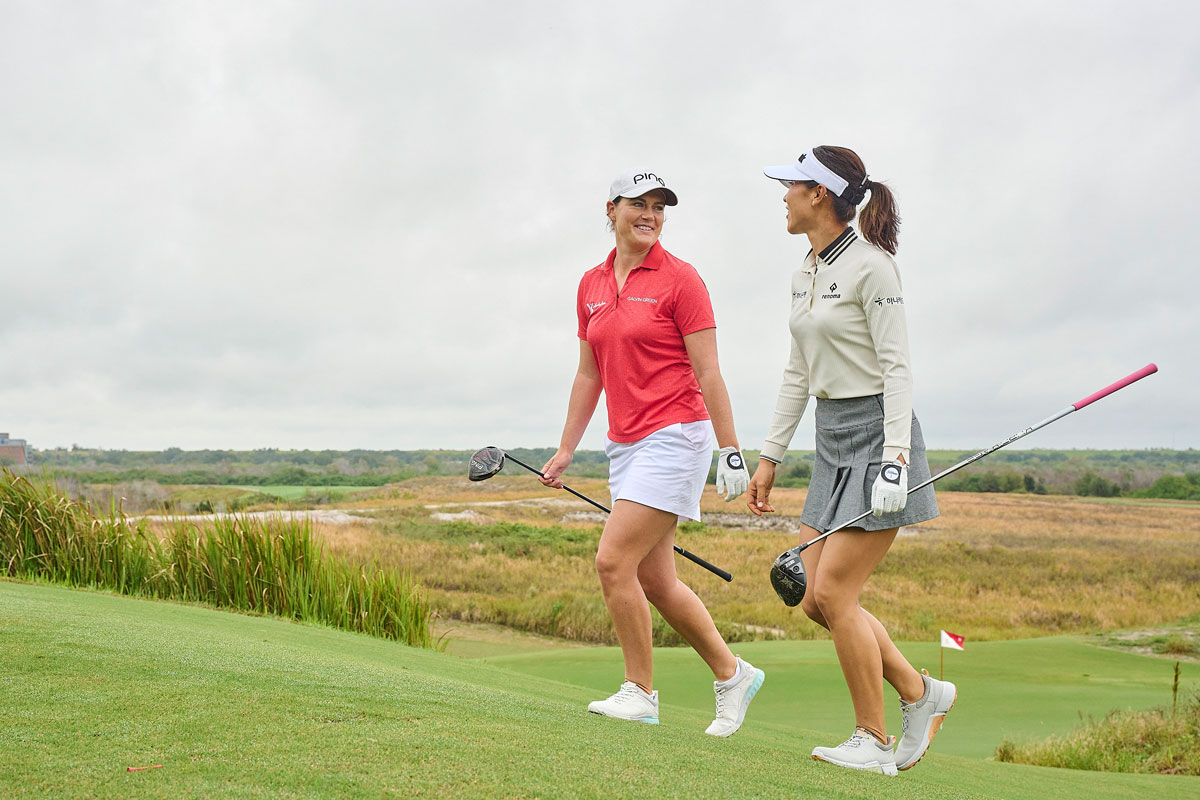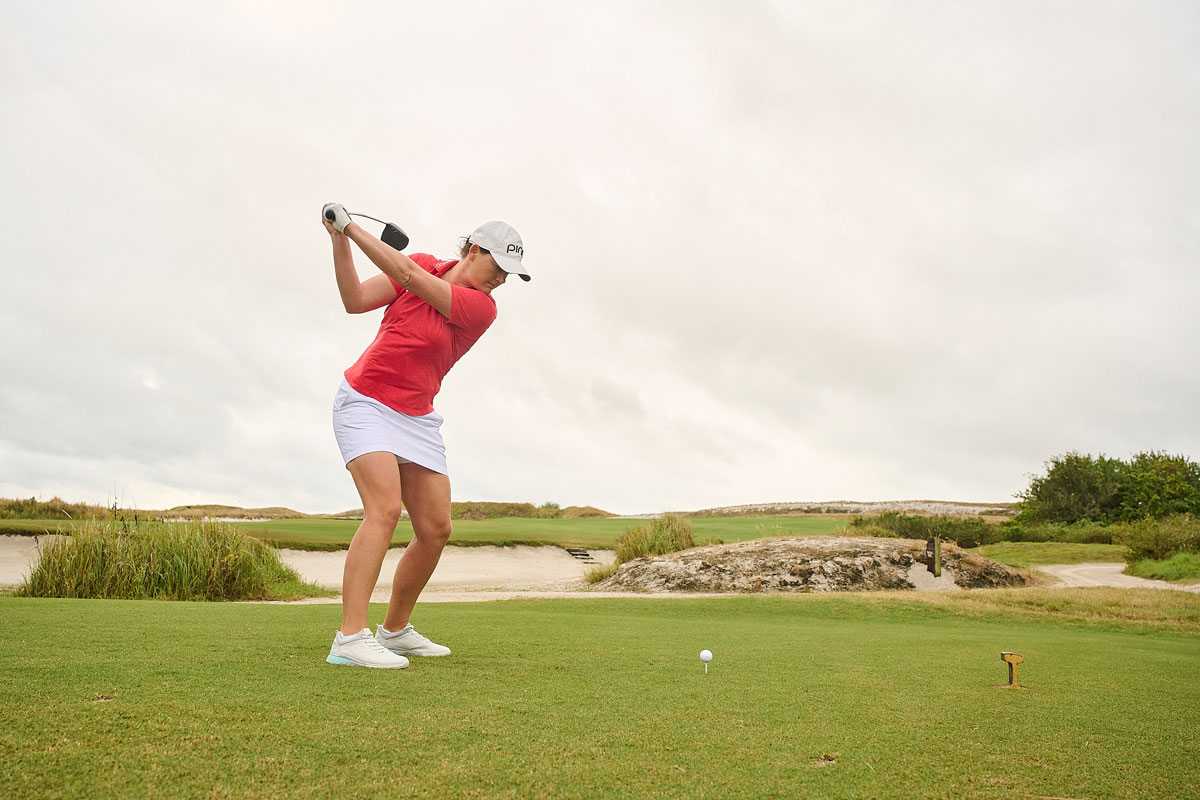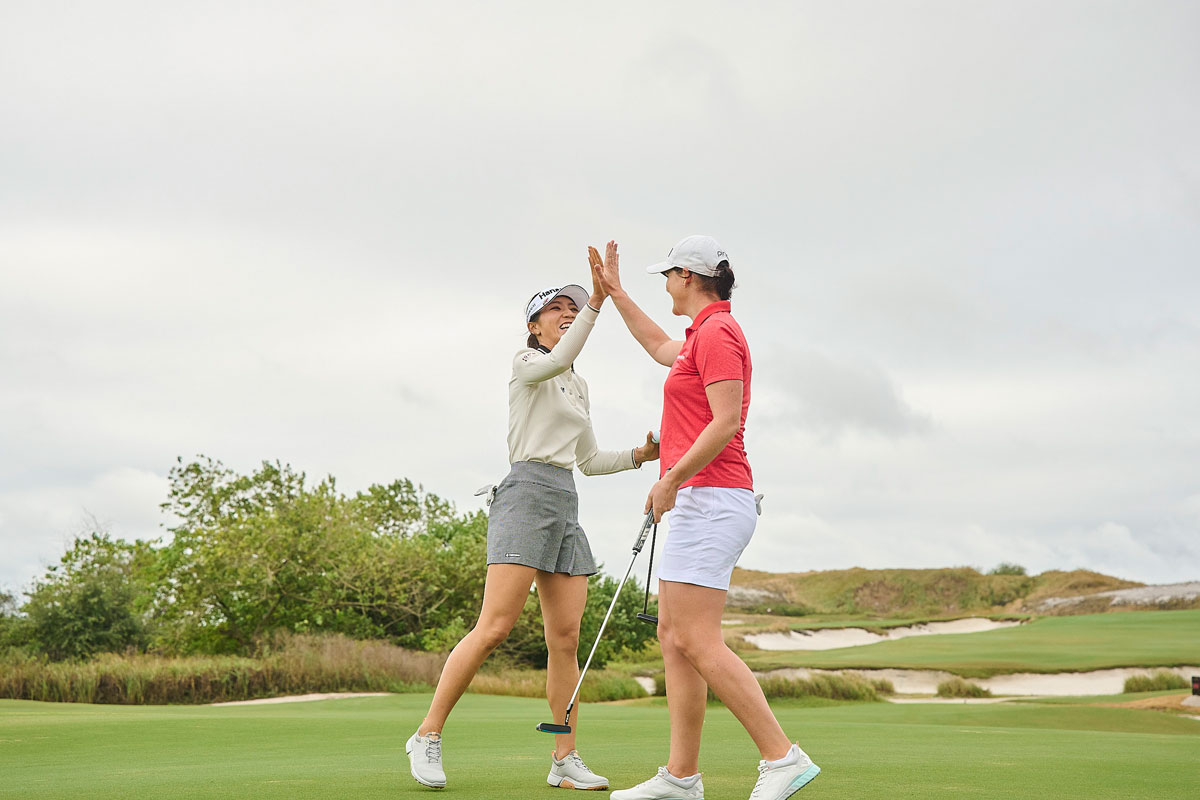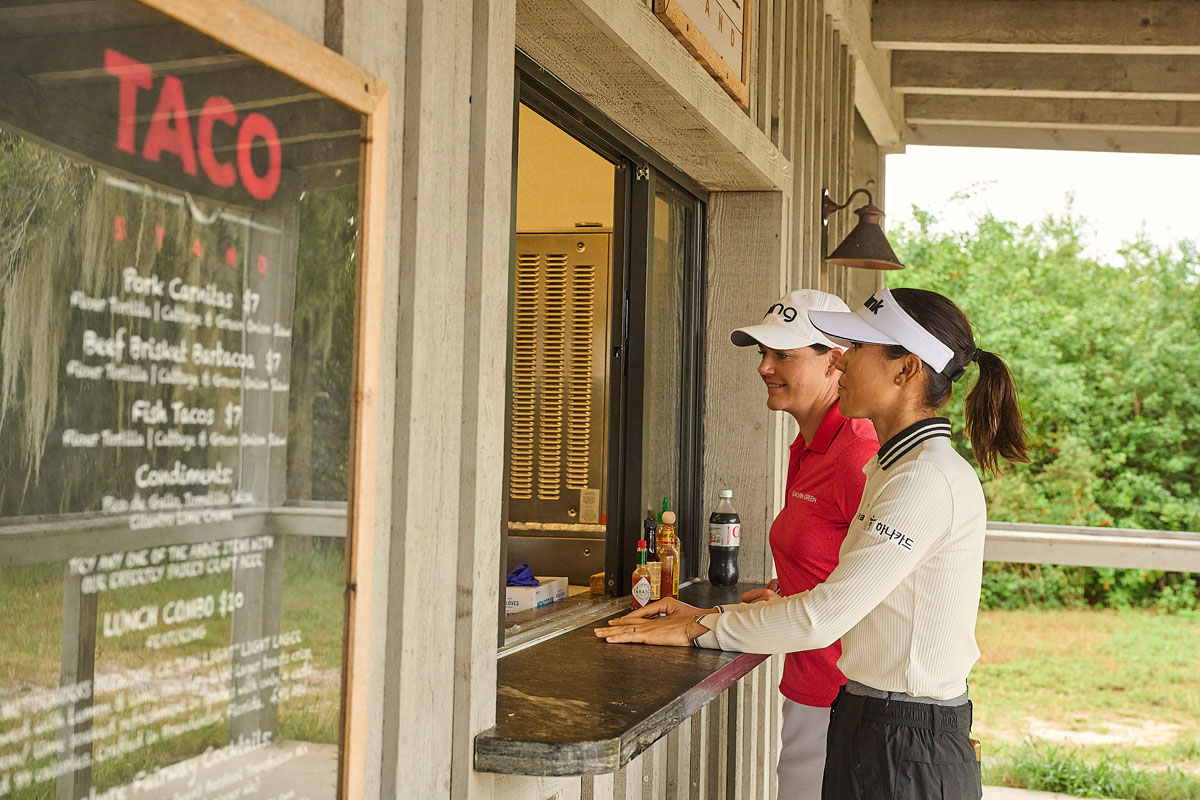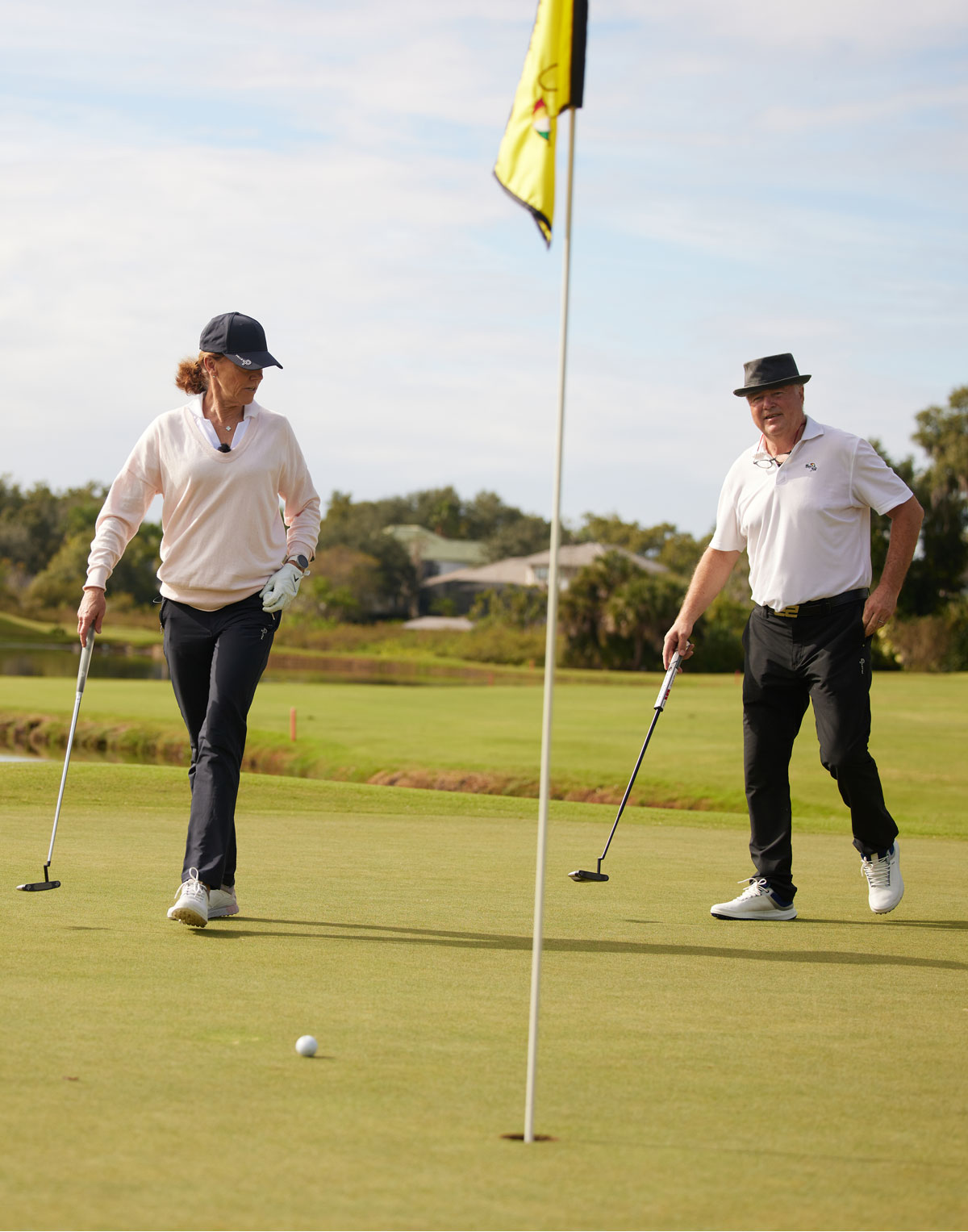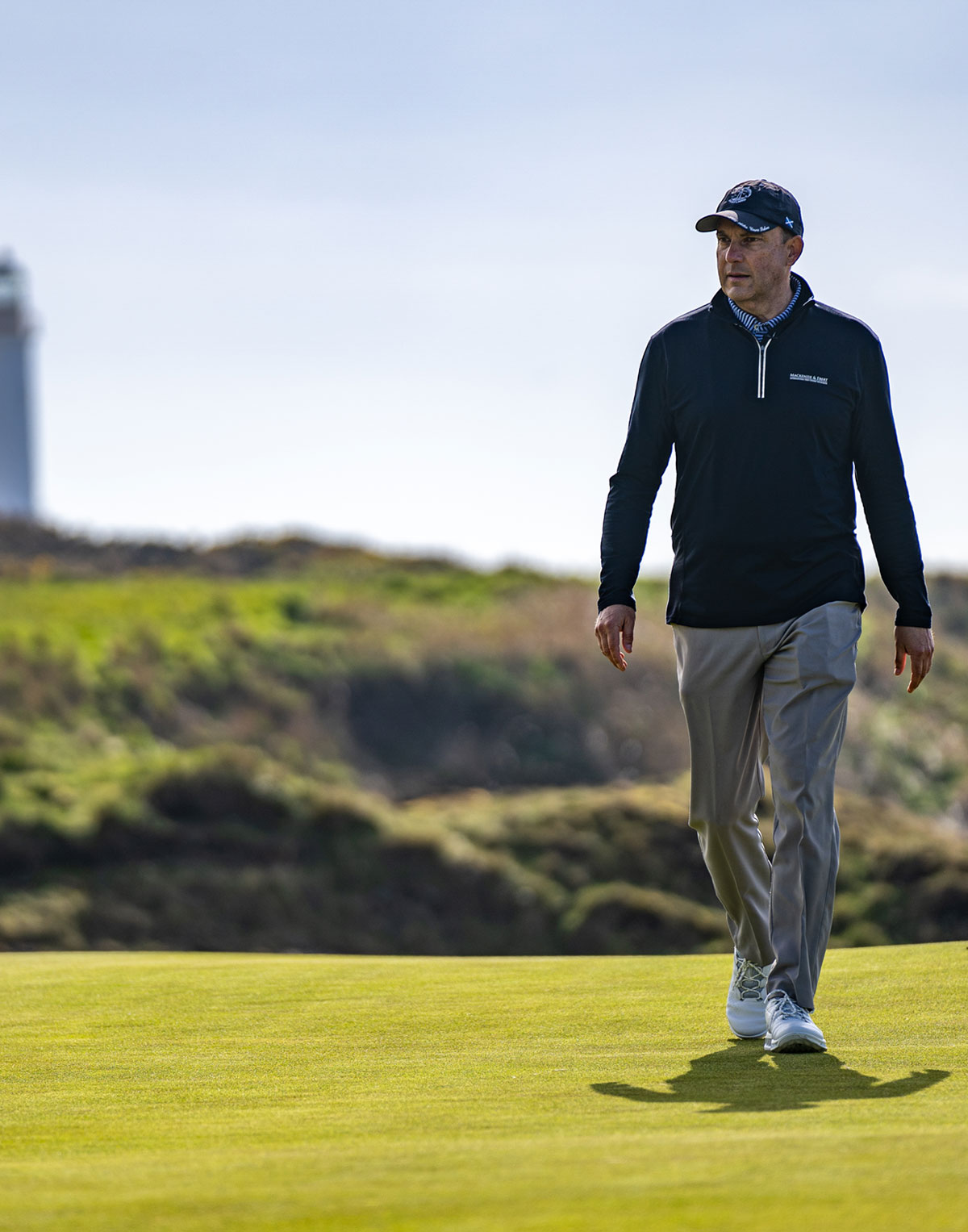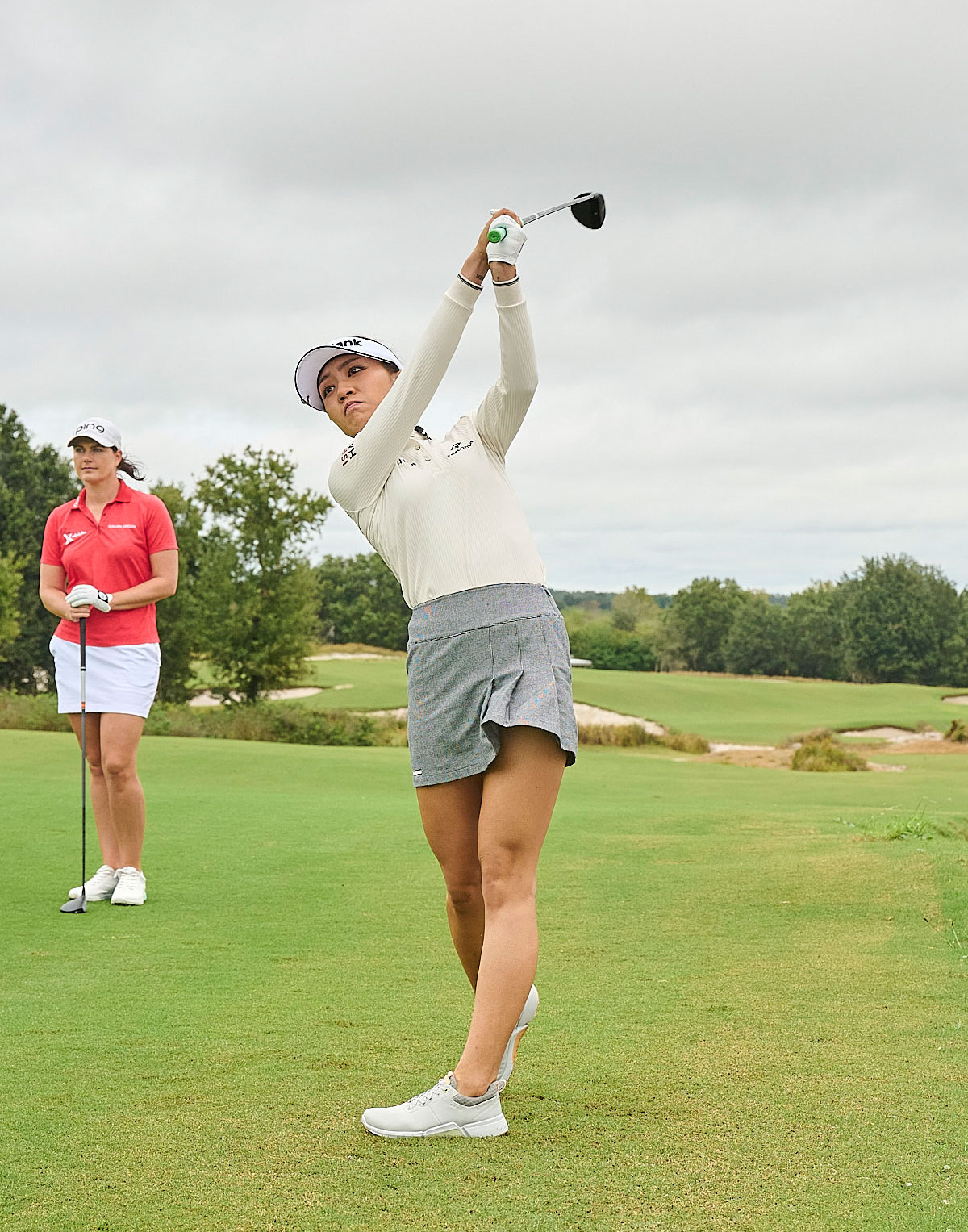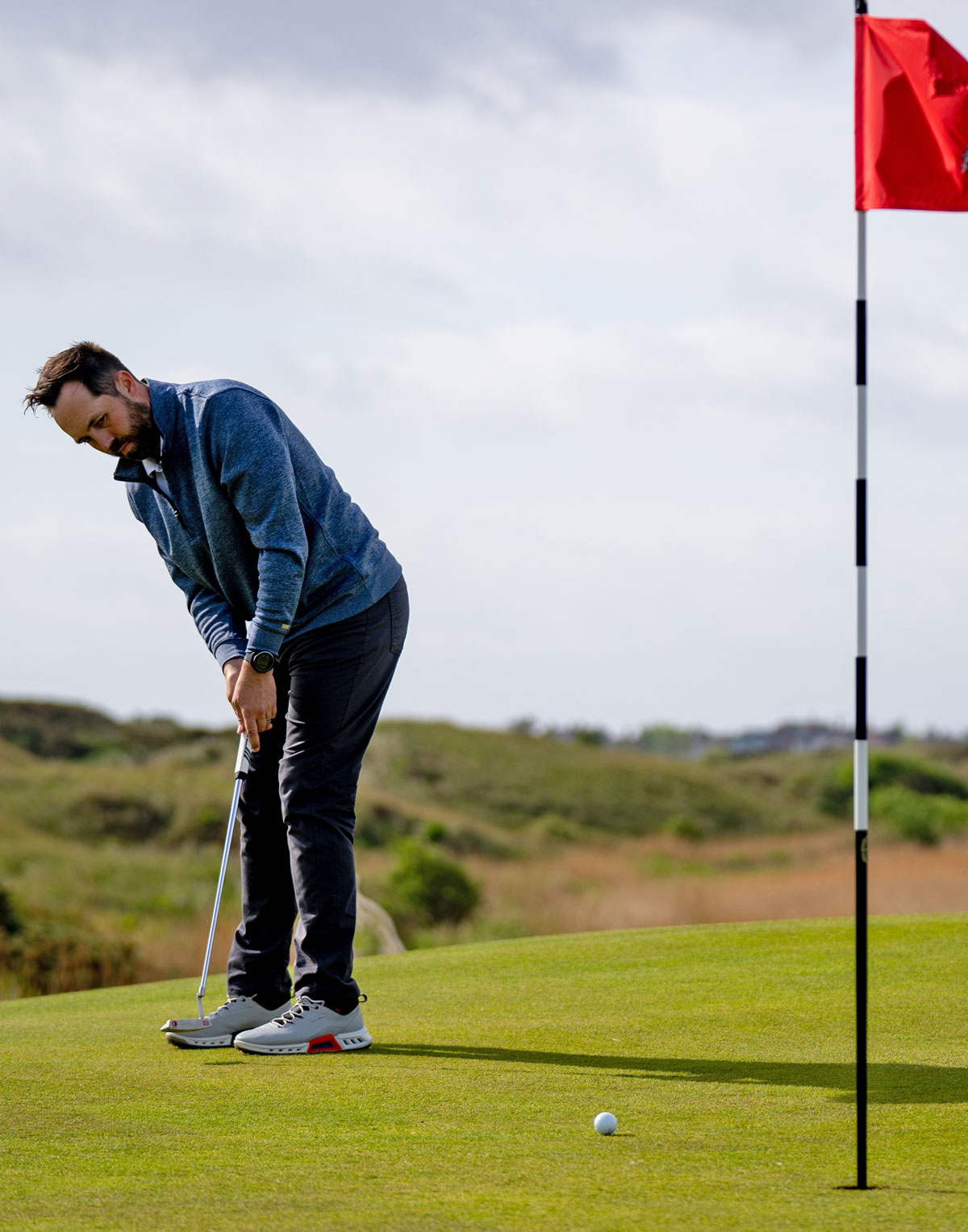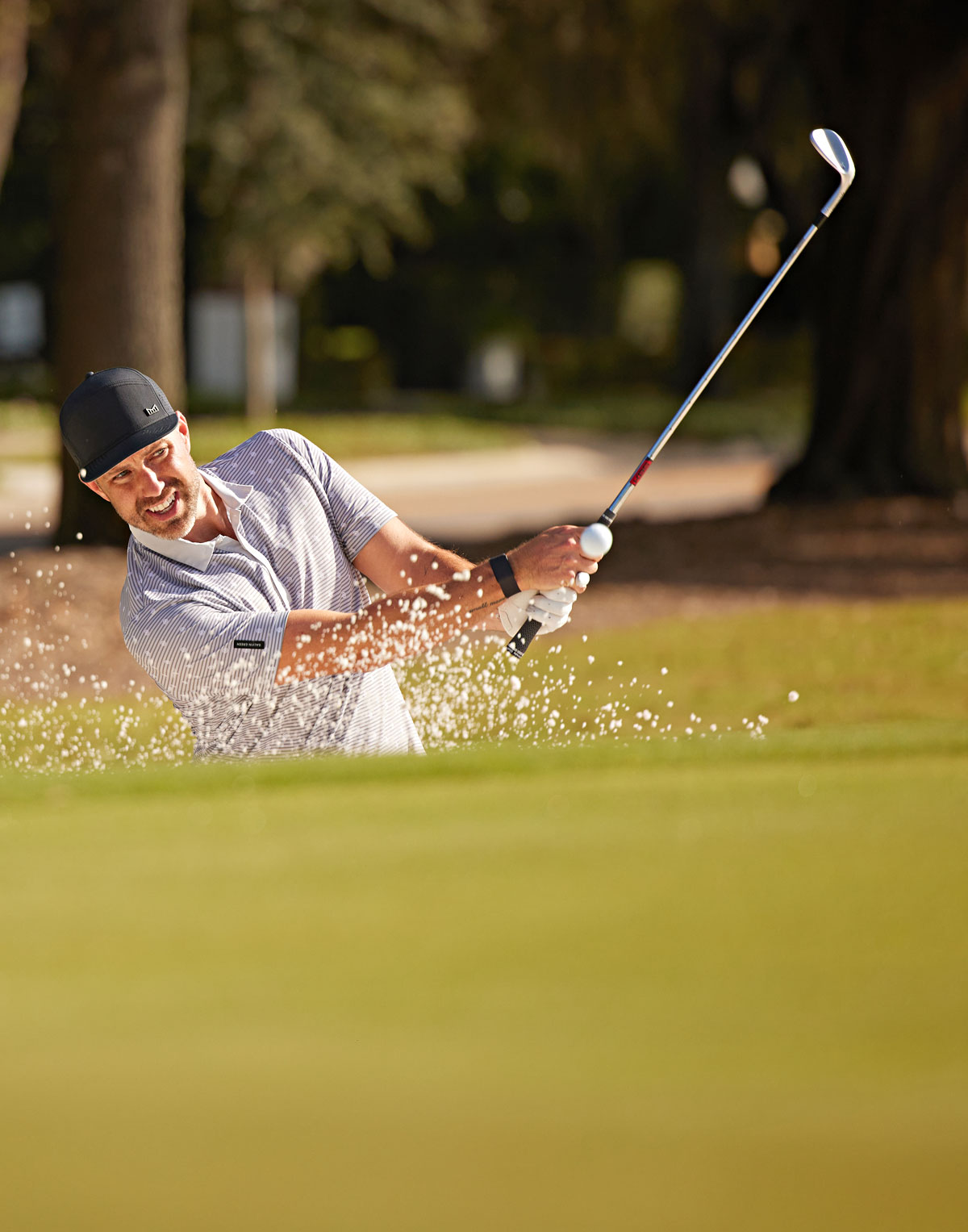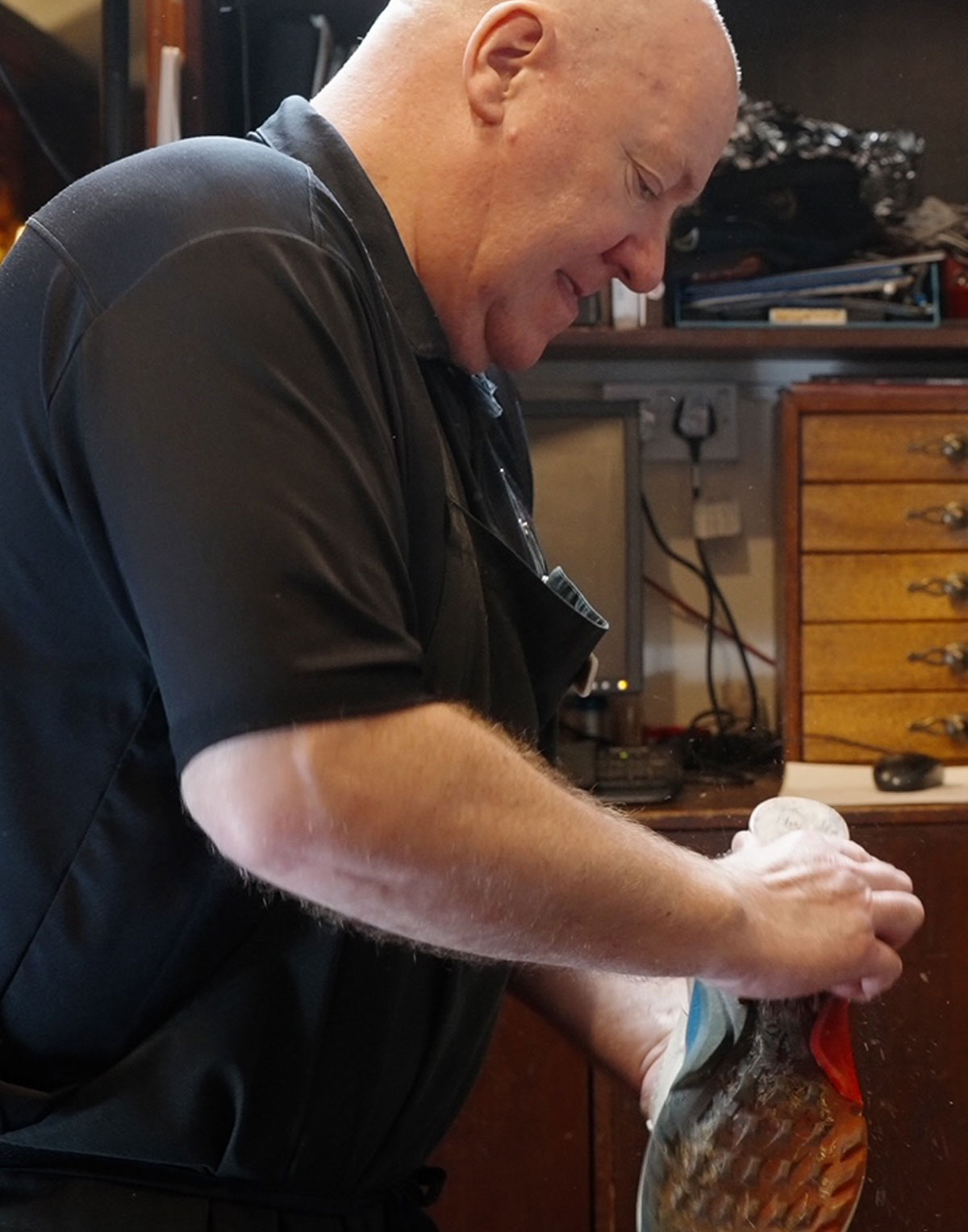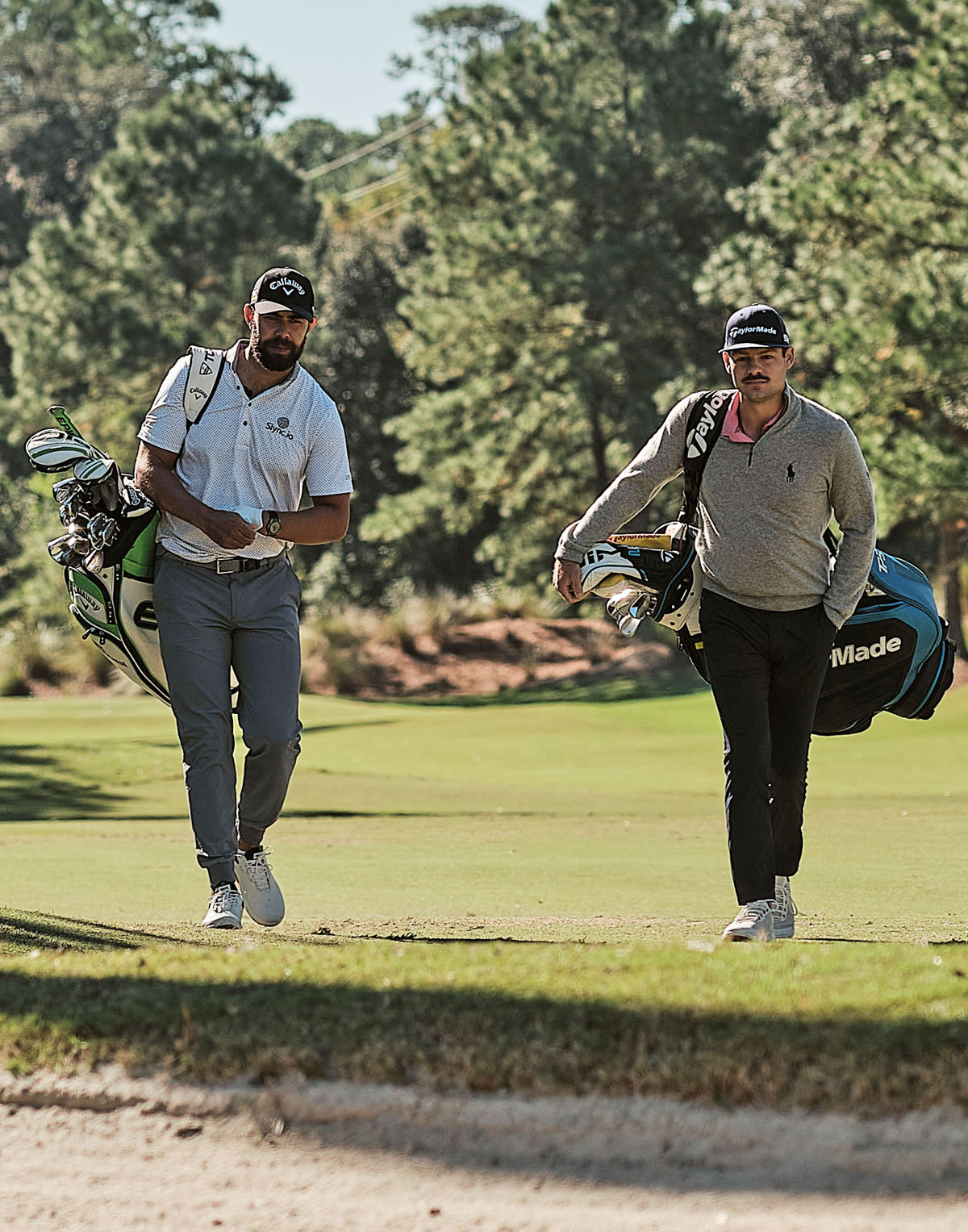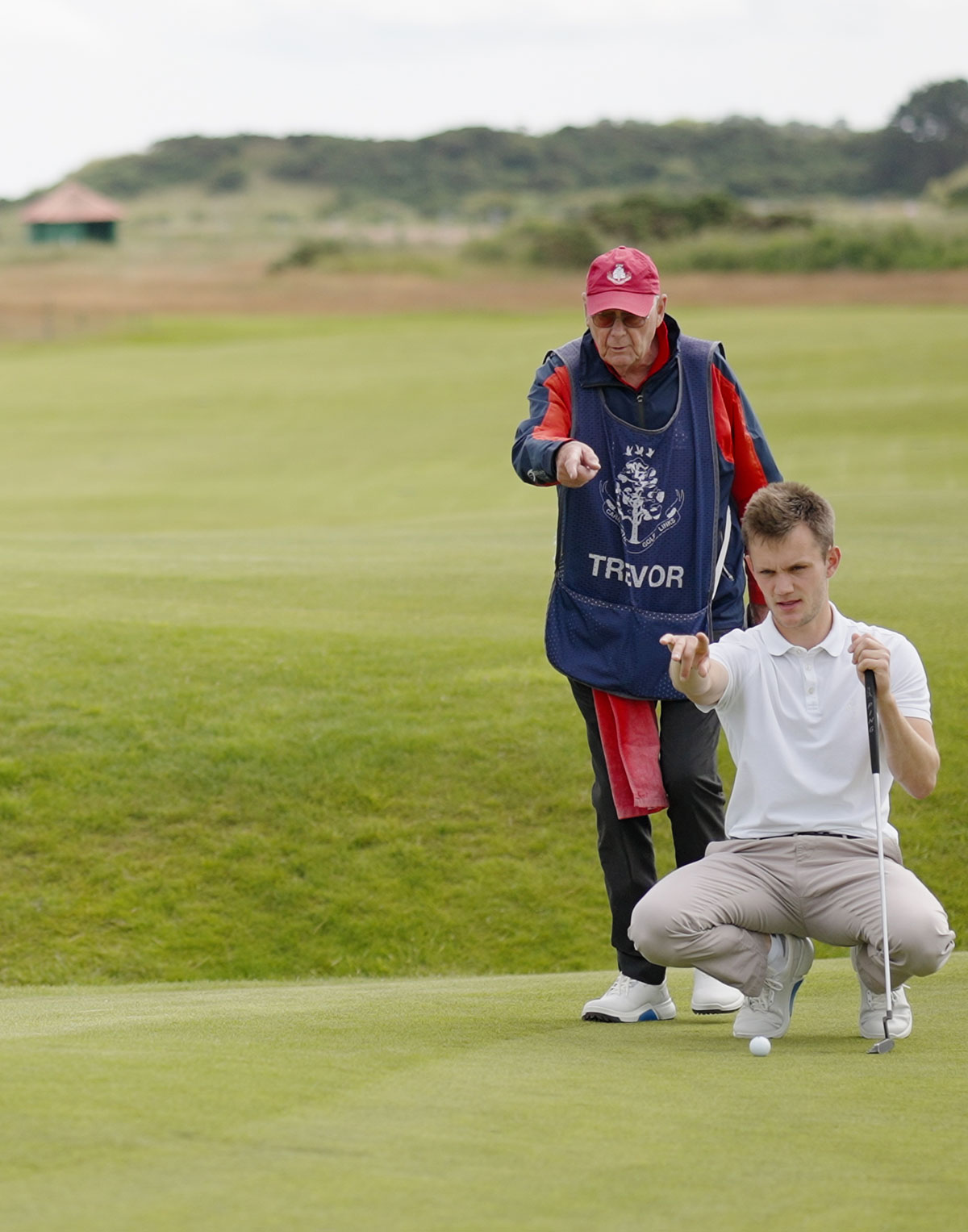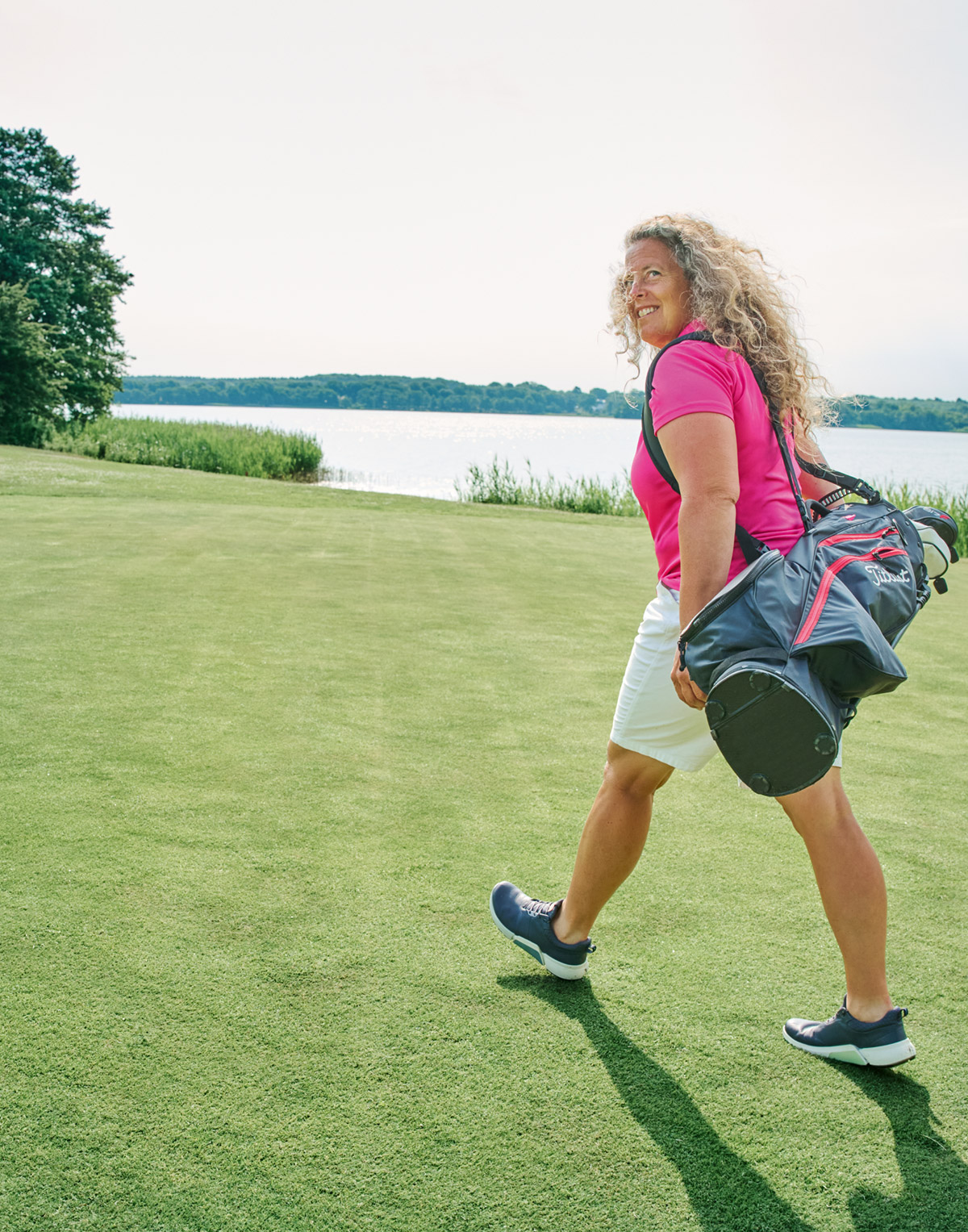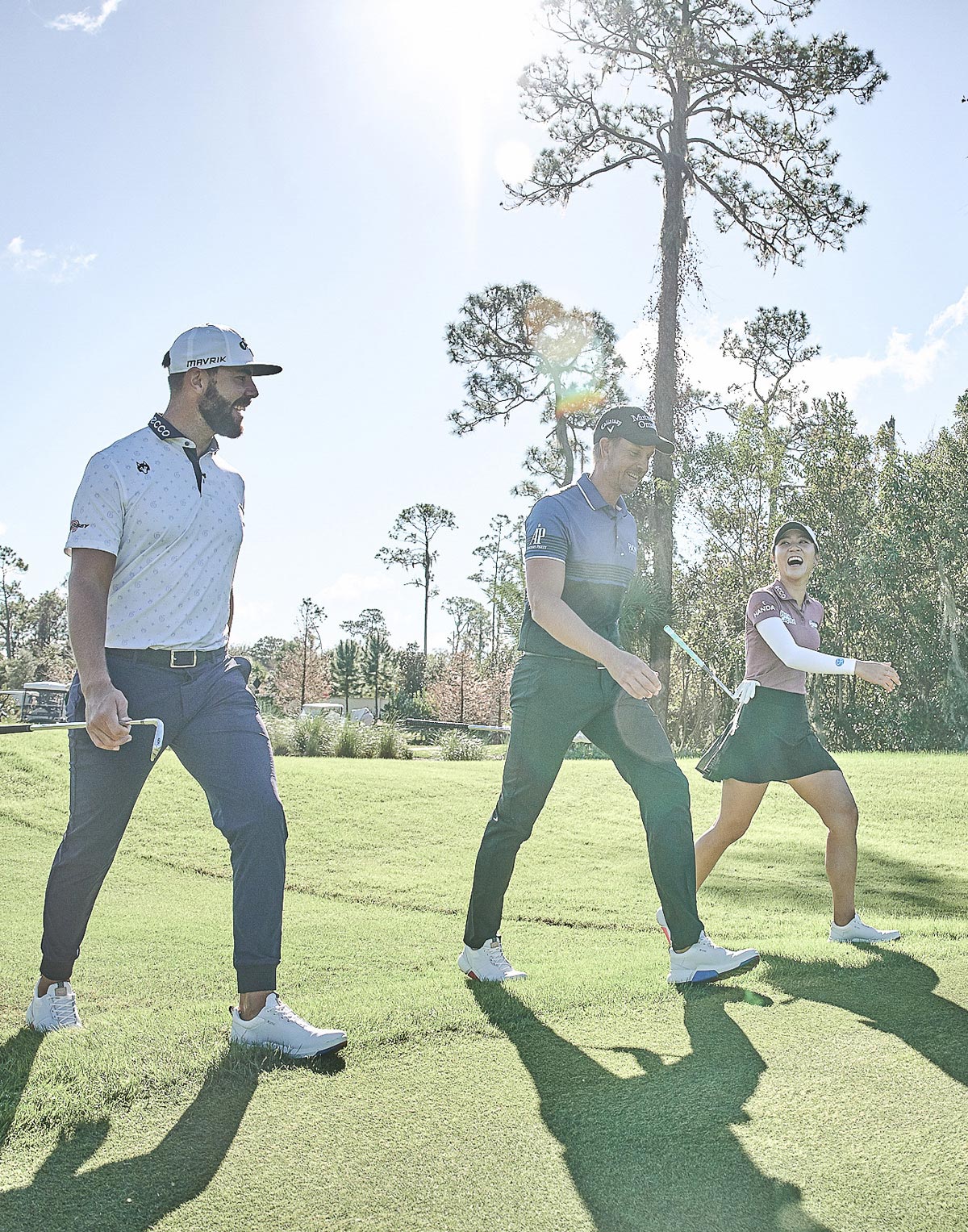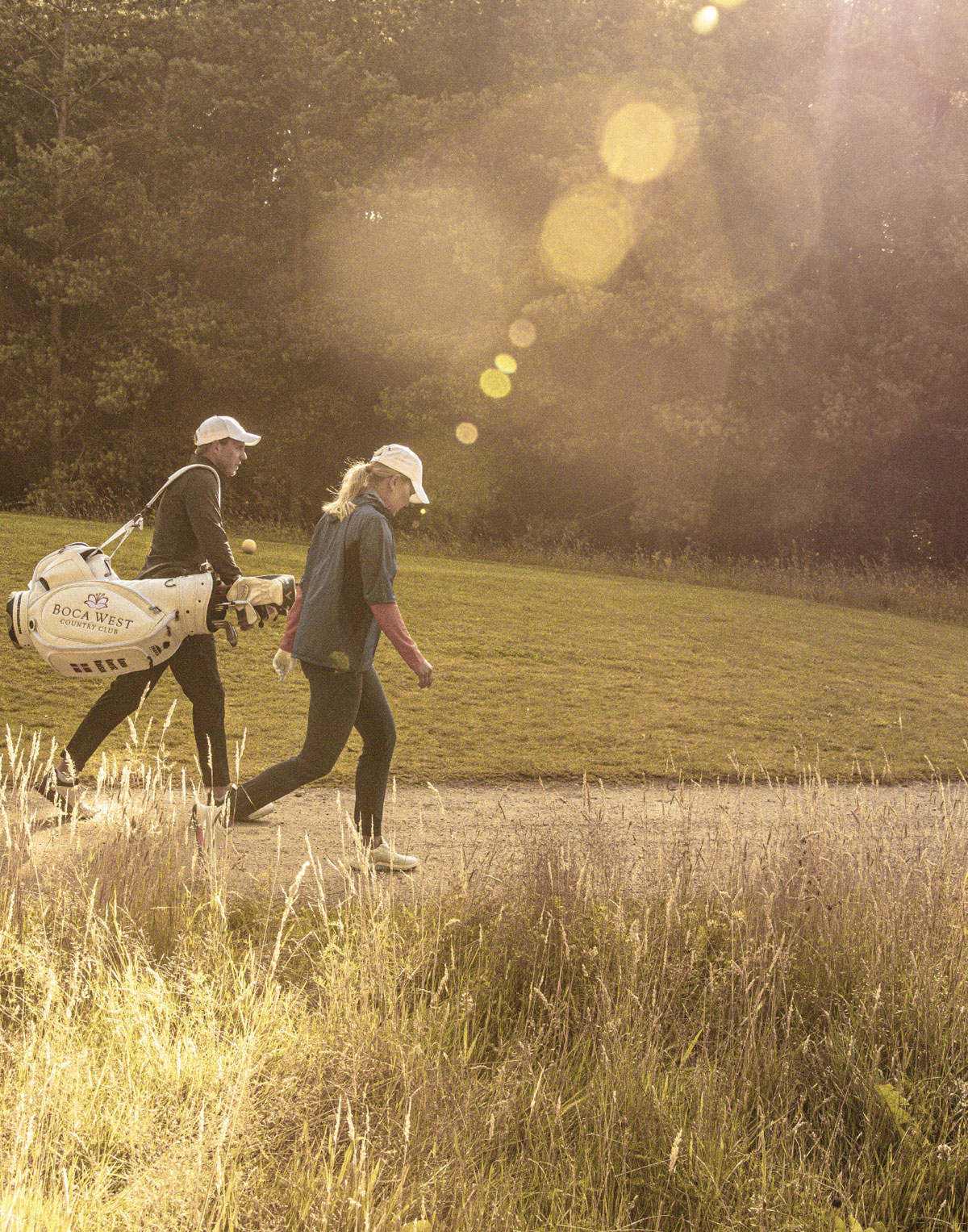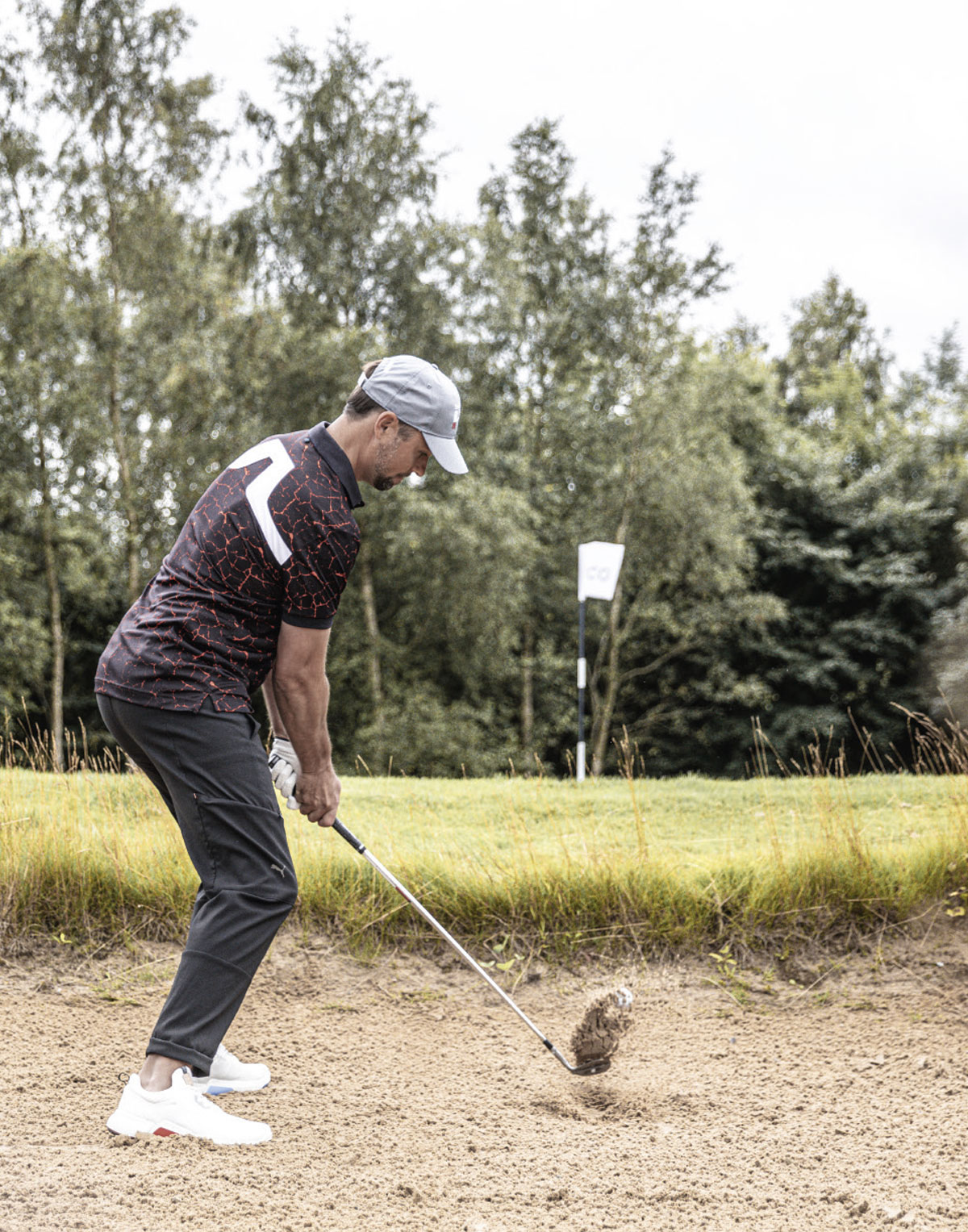
To say that golf is ›just a sport‹ is a real understatement.
Lydia Ko
Better together
Lydia Ko and Caro Masson have a lot in common; both play on the LPGA Tour, both moved to Florida for golf, and both competed for Olympic gold in Tokyo last year.
During our 2022 ECCO photoshoot at Streamsong Resort, the two spontaneously decide not to play against each other during the round of golf, but to collect as many birdies as possible together as a team. This leaves time for a few questions:
What did your paths from your amateur days to becoming a professional look like?
Caro: I decided to turn pro in 2010. I was 20 at the time and started on the Ladies European Tour and took a few years to figure out if I was good enough for the LPGA Tour. When I was sure I could compete, I played Q-School and that's how I ended up on the LPGA.
Lydia: For me it was a little different - I won the Canadian Open twice as an amateur so I didn't have to play qualifying tournaments, but I had to apply to play on the tour even though I wasn't 18 yet. So it feels crazy that I'm now playing my eighth year on the Tour. For me, the journey started earlier than I could have ever dreamed.
Caro: Lydia's entry into the pro world was incredible. She was such an amazing player, reaching a level at a very young age that takes others years to reach. It was absolutely inspiring to see you play, Lydia. I mean how cool is it to be playing tour events at 14 years old? I barely knew how to spell LPGA at that age!
Lydia: The coolest thing for me was that all of a sudden, I was playing with players I knew from TV and magazines, and they were all super friendly to me, which made it a lot easier for me to get on the tour.
What did your paths from your amateur days to becoming a professional look like?
Caro: I decided to turn pro in 2010. I was 20 at the time and started on the Ladies European Tour and took a few years to figure out if I was good enough for the LPGA Tour. When I was sure I could compete, I played Q-School and that's how I ended up on the LPGA.
Lydia: For me it was a little different - I won the Canadian Open twice as an amateur so I didn't have to play qualifying tournaments, but I had to apply to play on the tour even though I wasn't 18 yet. So it feels crazy that I'm now playing my eighth year on the Tour. For me, the journey started earlier than I could have ever dreamed.
Caro: Lydia's entry into the pro world was incredible. She was such an amazing player, reaching a level at a very young age that takes others years to reach. It was absolutely inspiring to see you play, Lydia. I mean how cool is it to be playing tour events at 14 years old? I barely knew how to spell LPGA at that age!
Lydia: The coolest thing for me was that all of a sudden, I was playing with players I knew from TV and magazines, and they were all super friendly to me, which made it a lot easier for me to get on the tour.
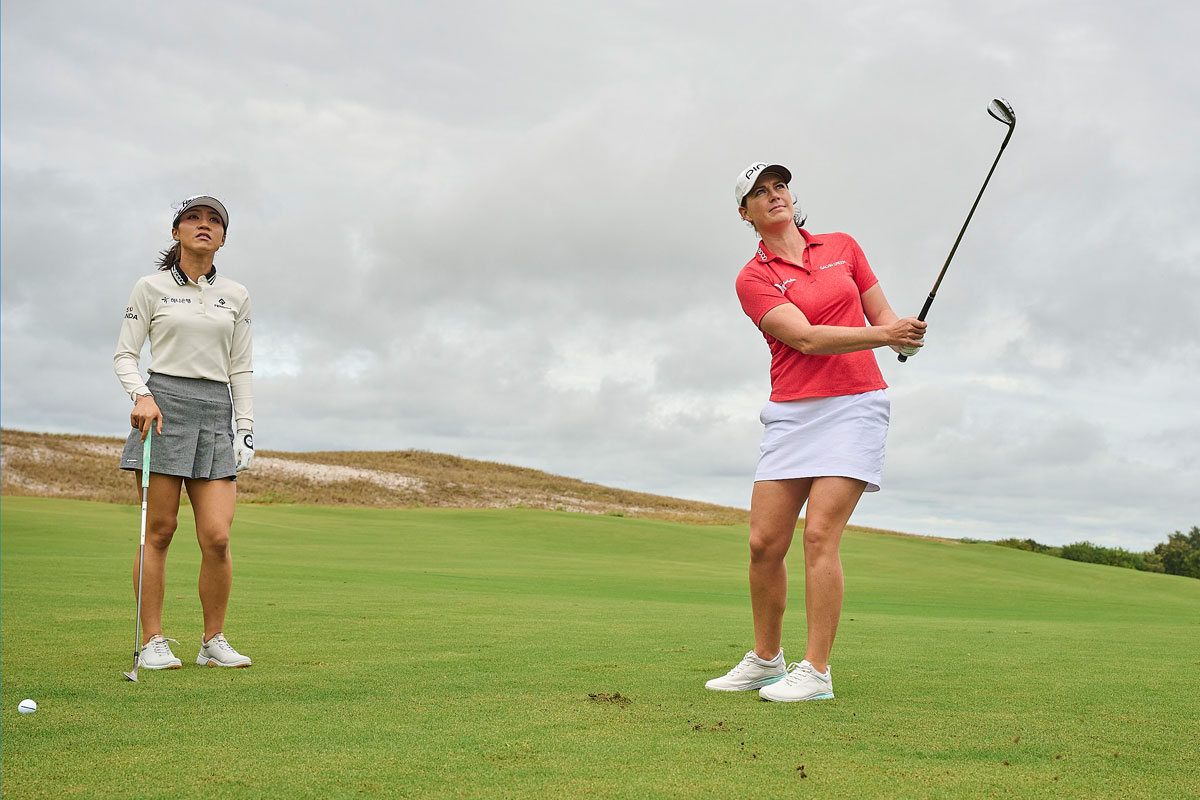
Caro: The biggest difference is the number of tournaments you play. As an amateur you play 12 to a maximum of 15 tournaments per season and then suddenly you have a full schedule with up to 35 tournaments. That's a huge lifestyle change. On top of that, I left home at that time and created a new base for myself in the US. Personally, I think it's important sometimes to leave your comfort zone and take on challenges to develop yourself.
Lydia: As an amateur golfer, you don't play the full schedule. When you are on the professional tour, there are almost no breaks. Even the time between seasons goes by furiously and you're already preparing for the next season. We're both overseas players, I'm from New Zealand and Caro is from Germany, and we've left our home country and found a base in Florida that allows you to really live professional golf. And I don't just mean a flight to another country. It's a completely new life with a new culture and a lot of new things to deal with.
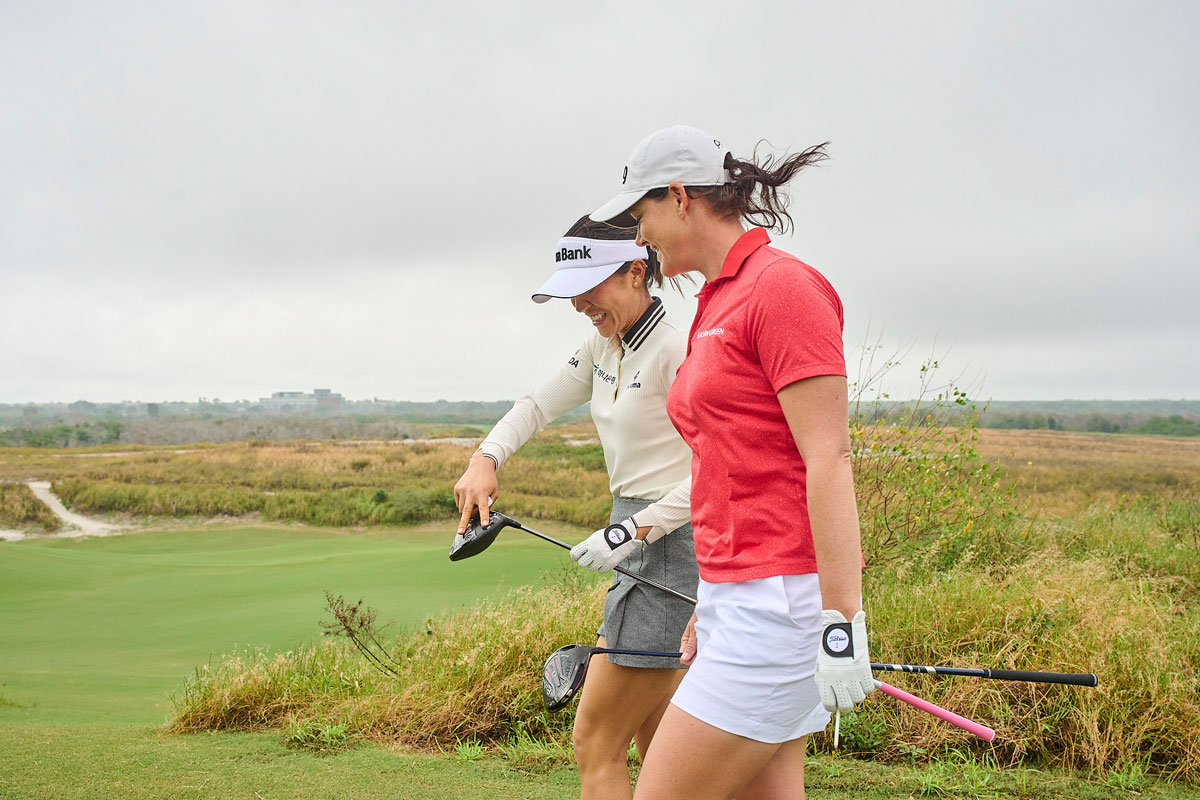
Lydia: Participating is something very special. Normally, golf is a sport for individuals. At the Olympics, you're playing for an entire country all at once. You play against the best players from all countries on the biggest sports stage in the world. It was a great honour for me to stand on the podium in Rio and Tokyo and then hear the national anthem. As an Olympian, you're not just accepted in golf - you're suddenly part of a huge sports world. It's worth training for this moment, even if it only happens once every four years.
Caro: The fact that golf has become part of the Olympics is a great thing for us professional women golfers. Every athlete dreams of the Olympics. As a golfer on tour, you live in a bubble where you travel from place to place and therefore don't get many opportunities to meet other athletes. The Olympics are different in that you have the opportunity to meet other athletes every day, watch them train, and develop a different perspective. For me, it was a dream to be able to participate in the Olympics and I think it's a great opportunity for golf to find even more fans.
Is life as a professional golfer as attractive as it looks on TV?
Caro: It's varied and exciting, but it's also hard work and lots of adrenaline. There are definitely difficult moments on the golf course that you have to deal with. As a professional golfer, you're always striving to get better and improve your performance. At the end of the season, you also have to be able to look back critically and think about what you can do even better. Life on the Tour is definitely challenging.
Lydia: The life of professional golfers certainly looks extravagant from the outside. We play for big prize money and some pros even travel in private jets. But behind the scenes it often looks different, because at the end of the day we also just go to a hotel room and wash our clothes and think about how we can become even better. We invest a lot of time to play our best golf. I'm sure it looks great to outsiders to see us playing on the best golf courses in the most beautiful places in the world, but at the end of the week, what matters to us is holding the trophy in our hands. However, I am also very grateful for this life, because not many young female golfers have the chance to see as many cultures and gain new experiences as I do. We professional players are really lucky because the LPGA Tour is really on the right track and the relationship between us players is usually very good even if we are competitors. It feels like a big family and that's why more and more players want to play on the tour.
Caro: Yes, the atmosphere on the tour is really good. We support each other to get better. All the players have respect for each others' performance. I am often asked if it must be hard to be confronted with so many competitors every day, with all the envy and resentment? But the opposite is the case. There are great friendships on the tour and a real family feeling. That's what makes women's golf and the LPGA Tour so special.
Something completely different - what about food when you are traveling? How important is good food to you?
Lydia: I think I have become a specialist in finding good restaurants. Even before the tournaments, I research where to eat well and always try out new things. Meanwhile, I also get tips from other players when they have discovered a good Asian restaurant, for example. I love Korean food, but Korean food in LA or Florida is very different from Korean food in Korea. Trying new restaurants are my little adventures off the golf course.
Caro: I love food and it's really a privilege to travel around so much and try different cuisines in all the different countries. But I also love to cook and I have become a respectable chef. I make all kinds of pasta with all kinds of sauces and I also like to cook German food.
What does golf mean to you?
Caro: Golf is definitely more than just a game to me. And it's not just about good results or winning. Golf is enormously diverse and when it's going well and everything comes together it's the best feeling in the world.
Lydia: Golf is more than a game and can have a positive impact on your personality. For example, I have learned to be more patient on the golf course and have grown through golf not only as a golfer but also as a person. To call golf just a sport is a real understatement.
Lydia: I think I have become a specialist in finding good restaurants. Even before the tournaments, I research where to eat well and always try out new things. Meanwhile, I also get tips from other players when they have discovered a good Asian restaurant, for example. I love Korean food, but Korean food in LA or Florida is very different from Korean food in Korea. Trying new restaurants are my little adventures off the golf course.
Caro: I love food and it's really a privilege to travel around so much and try different cuisines in all the different countries. But I also love to cook and I have become a respectable chef. I make all kinds of pasta with all kinds of sauces and I also like to cook German food.
What does golf mean to you?
Caro: Golf is definitely more than just a game to me. And it's not just about good results or winning. Golf is enormously diverse and when it's going well and everything comes together it's the best feeling in the world.
Lydia: Golf is more than a game and can have a positive impact on your personality. For example, I have learned to be more patient on the golf course and have grown through golf not only as a golfer but also as a person. To call golf just a sport is a real understatement.
